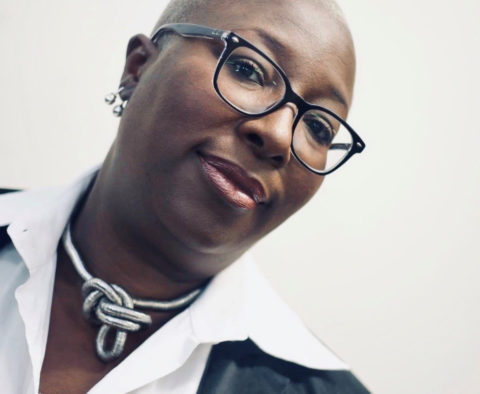“The face of Britain is becoming a face of diversity” and VTCT is following suit

@VTCT_uk #EDI One year on
In May 2020, the brutal murder of George Floyd shook the world to its core. In the midst of a collective pain and mourning shared across the globe, came a renewed vigour for action to reckon with the spectre of racial inequality. It became a time for long awaited introspection from every facet of society, from individuals all the way to public, private and third sector institutions. A time to enact real sustainable and evidenced change.
To tackle this challenge, VTCT Chief Executive, Alan Woods OBE, implemented an Equity, Diversity and Inclusion (EDI) road map that the organisation will be accountable to – to measure, check and identify their progress towards their commitment to EDI. These are not simply pledges, platitudes and promises without outcomes and accountability – it is real actionable, trackable change. This will not only have an impact for VTCT but for the wider sector as a whole.
This undertaking began with the inception of an EDI advisory group. In September 2020, Alan Woods, brought together a range of diverse voices to form an EDI advisory group, chaired by Geoff Thompson MBE.
As well as this, Alan Woods commissioned a company survey to provide the context of the current landscape of VTCT’s understanding of Equity, Diversity and Inclusion. This survey gave employees the floor to share their thoughts and feelings around the subject, providing fertile ground to build upon.
Using these insights, Alan Woods and the EDI advisory group, created the EDI road map – as the blue print and benchmark for the organisation.
Ensuring qualifications are fit for purpose
The organisation undertook an independent review of their qualifications and identified the following:
VTCT offers world-class qualifications globally and their suite of qualifications were fit for purpose. However, improvements were required to see black hair and skin care form part of the core element of VTCT qualifications, making their qualifications inclusive and accessible to all.
VTCT identified the need to include black hair and skin care as core elements within the qualifications
An EDI technical team was established, comprised of industry and educational experts representing beauty, make-up artistry, hairstyling, Salons, Further Education and private training providers. The knowledge from these sector specialists was utilised to discuss the current landscape of available teaching materials.
It became clear that there was a lack of knowledge and skills required to deliver black hair and skin care treatments within the industry. The importance of black hair and skin care was discussed, forming part of the core curriculum and the impact this could have on learners when working within the industry. This concluded that learners should have knowledge and understanding of different hair and skin types, so they are equipped to conduct services and treatments on all clients.
Identifying the need to review methods of assessment
Currently, assessment methods are implemented in such a way that core knowledge regarding black hair care and skin is being overlooked due to regional biases. By emphasising EDI within exams, question types and themes, VTCT will ensure knowledge across all hair and skin types is delivered in depth.
VTCT, the leading industry expert, is striving to become the first Awarding Organisation to make their qualifications reflect all skin and hair types as well as supporting educators and learning establishments with the skills and knowledge to do so.
Recognising the need to support training providers
VTCT will provide a range of training to facilitate the delivery of the learning materials. Centre staff responsible for delivering this content, will do so confidently with the support of VTCT’s subject matter specialists and expert technical panel. VTCT will have a mixed marketing campaign and will communicate with customers using the following methods;
- Guidance documents
- Resource materials
- Webinars
- Group support meetings
- Online and face-to-face workshops
For far too long the black community’s immense contribution to contemporary Britain has been marginalised. With the Office of National Statistics (ONS) reporting that black and minority ethnic groups are expected to make up 35% of the population by 2035, coupled with all of the lessons learned from the past year, this simply cannot go on. Additionally, ethnic minorities in the UK have an estimated spending power of £300 billion, bringing incredible opportunities of new, diverse and thriving markets. The UK has been slow to grasp these opportunities, especially in the area of hair care and beauty.
It is now impossible to ignore that the face of Britain is becoming a face of diversity.
It is not only paramount to the learners entering the hair and beauty sector – it will also have significant rewards for the wider stakeholders within government and industry alike.
By Sonia Robinson and Jacqui McIntosh












Responses